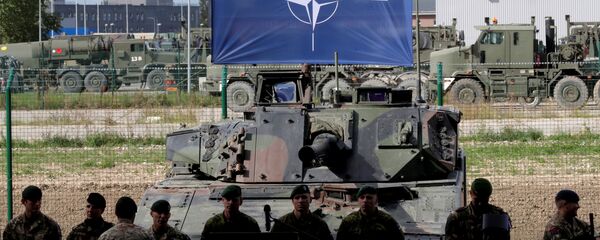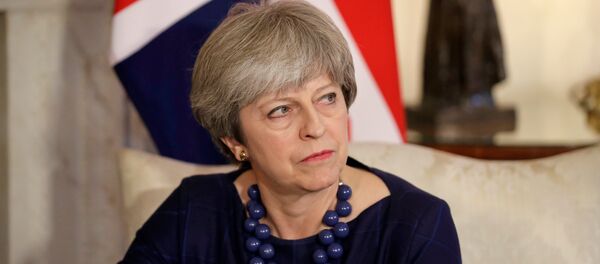While NATO Secretary General Jens Stoltenberg welcomed the creation of the Permanent Structured Cooperation (PESCO) in November 2017 claiming that it was "good" for both Europe and the transatlantic military bloc, international observers believe that the new organization has emerged as an alternative to the US-led alliance.
"It was important for us that we Europeans stand up independently, especially after the election of the U.S. president. Nobody will solve our security problems for us. We have to do it ourselves," German Defense Minister Ursula von der Leyen said, commenting on EU defense ministers signing a joint notification on PESCO on November 13.
On December 11, European Commission President Jean-Claude Juncker praised the first operational steps taken by EU member states to "lay the foundations of a European Defense Union," stressing that the European bloc's security "cannot be outsourced."
She is awake, the Sleeping Beauty of the Lisbon Treaty: Permanent Structured Cooperation is happening. I welcome the operational steps taken today by Member States to lay the foundations of a European #DefenceUnion. Our security cannot be outsourced. https://t.co/LNACbCdeWH
— Jean-Claude Juncker (@JunckerEU) 11 декабря 2017 г.
The creation of the new organization has triggered a lively debate. The Times, a British daily newspaper, hinted that the new defense pact is a de facto alternative to NATO.
Speaking to Deutsche Welle, the chief executive of the European Defense Agency (EDA), Jorge Domecq, suggested that the EU has long been a "lame duck partner" for the US in the military bloc.
For his part, Daniel Kochis, a policy analyst specializing in European affairs at The Heritage Foundation's Thatcher Center for Freedom, an influential US think tank, described the EU effort as a "bad idea" in his op-ed for The National Interest.
"In practice, PESCO is likely to be big on promises and fanfare, but it is unlikely to produce much in the way of additional military capability," he wrote. "With or without PESCO, NATO will remain the only institution capable of bringing real capabilities to bear in defense of Europe."
According to Belorussian political scientist Andrei Aksenov, the root cause for the growing discord between the EU and the US over the foundation of the new defense pact lies in Washington's repeated attempts to impose its economic and political diktat on Europe.
"The EU disengagement from the US has begun… after the failure of negotiations on the Transatlantic Trade and Investment Partnership (TTIP)," Aksenov told RT. "This failure meant that European politicians had successfully fought off [Washington's] attempt to impose an American model of the economic system through establishing a priority of US corporate courts' decisions over the legislative and executive bodies of Europe."
First the cracks appeared in US-EU economic relations; then their military-political ties have begun to crumble away, the political scientist believes. "Young Europeans," including the economically stronger countries of Central Europe, felt strong enough to cope with the Old Continent's security issues on their own, he opined, suggesting that the process of disintegration of the transatlantic alliance is underway.
According to Igor F. Maksimychev, of the Institute of Europe of the Russian Academy of Sciences (RAS), it was Juncker and German Chancellor Angela Merkel who spearheaded PESCO.
However, the Russian academic expressed doubts over the future of the European defense pact: The Americans are not interested in the existence of any other military organization, besides NATO," he noted dubbing the military bloc "an armed hand of the US" in Europe.
The academic foresaw that NATO would not allow the new defense pact to succeed. He noted that, probably, some decisions would be initially taken within the framework of PESCO, including the formation of new associations of national armies, joint military exercises and the improvement of military infrastructure. However, in the future, the transatlantic alliance will continue to remain the major military force in the West and Europe, in particular.
PESCO was first mentioned in the Lisbon Treaty of December 13, 2007. The defense pact will allow EU member states to enhance their armed forces, develop joint projects in the military sphere and jointly boost their defense capabilities.
Similarly to the requirements of the North Atlantic Treaty, the new European agreement obligates its members to bolster their defense budgets, allocating 20 percent of GDP for procurement and 2 percent for research and technology. Twenty-five EU states have thus far signed the PESCO defense pact.
The views and opinions expressed by the analysts do not necessarily reflect those of Sputnik.





